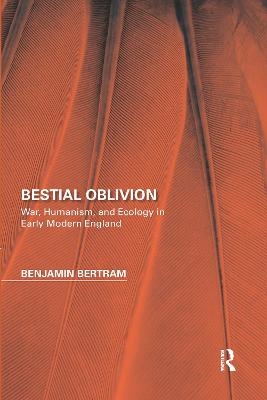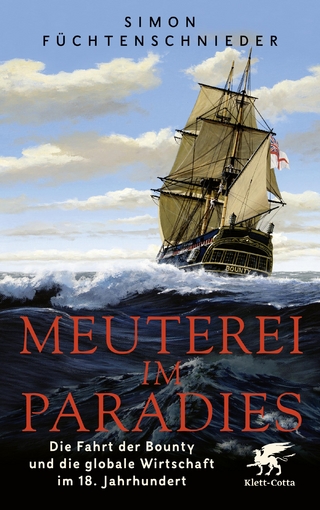
Bestial Oblivion
Routledge (Verlag)
978-0-367-66651-4 (ISBN)
Although war is a heterogeneous assemblage of the human and nonhuman, it nevertheless builds the illusion of human autonomy and singularity. Focusing on war and ecology, a neglected topic in early modern ecocriticism, Bestial Oblivion: War, Humanism, and Ecology in Early Modern England shows how warfare unsettles ideas of the human, yet ultimately contributes to, and is then perpetuated by, anthropocentrism. Bertram’s study of early modern warfare’s impact on human-animal and human-technology relationships draws upon posthumanist theory, animal studies, and the new materialisms, focusing on responses to the Anglo-Spanish War, the Italian Wars, the Wars of Religion, the colonization of Ireland, and Jacobean “peace.” The monograph examines a wide range of texts—essays, drama, military treatises, paintings, poetry, engravings, war reports, travel narratives—and authors—Erasmus, Machiavelli, Digges, Shakespeare, Marlowe, Coryate, Bacon—to show how an intricate web of perpetual war altered the perception of the physical environment as well as the ideologies and practices establishing what it meant to be human.
Benjamin Bertram is Professor of English at the University of Southern Maine, USA. His publications include articles in the Routledge Handbook on Shakespeare and Animals (forthcoming), Modern Philology, English Literature, Exemplaria, and Boundary 2. His first book, The Time is Out of Joint: Skepticism in Shakespeare’s England, was published in 2004.
List of Figures; Acknowledgements; Introduction; Chapter 1 Erasmus and the Dung Beetle; or, Human Exceptionalism and Its Discontents; Chapter 2 Machiavelli, Virtù, and the Ecology of War; Chapter 3 Iron Men: Thomas Digges, A Larum for London, and the Elizabethan Cyborg; Chapter 4 War and Resilience: Tamburlaine the Great and the Anglo-Spanish War; Chapter 5 Bestial Oblivion in Shakespeare’s Hamlet; Chapter 6 Thomas Coryate, the Lousy Humanist; Chapter 7 Humanity Under Siege: Francis Bacon’s Human Empire and the Capitalocene; Author Index; Subject Index
| Erscheinungsdatum | 01.10.2020 |
|---|---|
| Reihe/Serie | Perspectives on the Non-Human in Literature and Culture |
| Verlagsort | London |
| Sprache | englisch |
| Maße | 152 x 229 mm |
| Gewicht | 453 g |
| Themenwelt | Geschichte ► Allgemeine Geschichte ► Neuzeit (bis 1918) |
| Geisteswissenschaften ► Sprach- / Literaturwissenschaft ► Anglistik / Amerikanistik | |
| Geisteswissenschaften ► Sprach- / Literaturwissenschaft ► Literaturwissenschaft | |
| Naturwissenschaften ► Biologie ► Ökologie / Naturschutz | |
| Technik ► Umwelttechnik / Biotechnologie | |
| ISBN-10 | 0-367-66651-0 / 0367666510 |
| ISBN-13 | 978-0-367-66651-4 / 9780367666514 |
| Zustand | Neuware |
| Haben Sie eine Frage zum Produkt? |
aus dem Bereich


